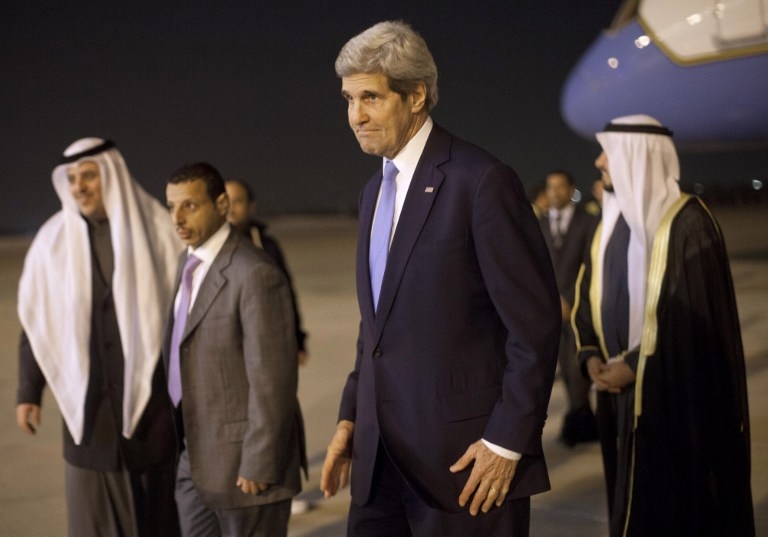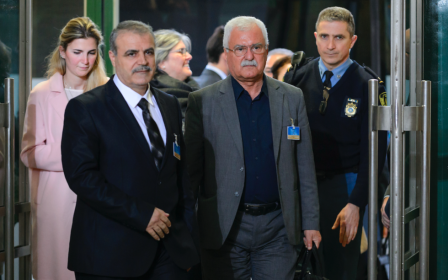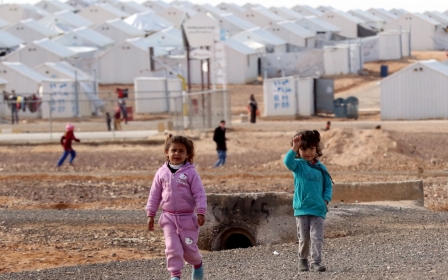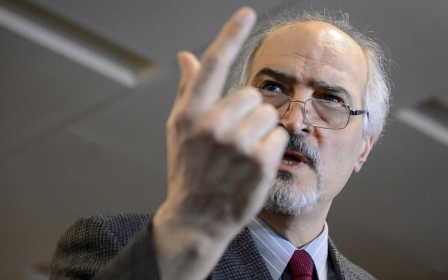Syria donors to meet in London in bid to stem refugee crisis

World leaders will gather in London on Thursday to try to raise $9bn for the millions of Syrians hit by the country's civil war and a refugee crisis spanning Europe and the Middle East.
The donor conference, the fourth of its kind, hopes to meet the UN's demand for $7.73bn to help Syria plus $1.23bn assistance for countries in the region affected by the crisis.
British Prime Minister David Cameron will host more than 70 international leaders, including German Chancellor Angela Merkel, UN Secretary General Ban Ki-moon, Lebanese Prime Minister Tammam Salam, and Chinese Foreign Minister Wang Yi.
The war, which began with protests against Syrian President Bashar al-Assad in March 2011, has claimed more than 260,000 lives and caused a major humanitarian crisis.
The conflict has forced 4.6 million Syrians to seek refuge in countries in the region - Jordan, Lebanon, Turkey, Iraq and Egypt - while hundreds of thousands have attempted to reach Europe, sometimes paying with their lives while making the risky crossing of the Mediterranean.
From toddler Alan Kurdi - found drowned on a Turkish beach - to the death by starvation of 16-year-old Ali in the besieged Syrian town of Madaya, the eyes of the world have recently been opened to the civilian impact of the ongoing violence.
In response, donors need to do more than just dig deep financially, Cameron urged.
"We need to agree concrete action," he said, calling for the provision of jobs and education in countries neighbouring Syria as the living conditions of refugees deteriorate by the day.
"This is not just in the interests of Syria and her neighbours," he added.
"It is in the interests of Europe too. The more we do to enable people to stay in the region, the less likely we are to see them coming to Europe."
'Race against time'
Cameron has called for better trade links between Jordan and the European Union, and for neighbouring countries to impose a minimum limit on the number of Syrians employed in certain sectors.
With Merkel's popularity slipping over her policy of welcoming hundreds of thousands of migrants, Germany comes into the talks with a similar goal to limit migration levels.
"In the long term, education and work must contribute... to stem the flow of refugees to Europe," said German Foreign Minister Frank-Walter Steinmeier.
German Development Minister Gerd Muller recently told German media that a "work alliance" could help create 500,000 jobs for refugees in Jordan, Turkey and Lebanon.
The hope is that policies to boost general employment will also ease growing resentment felt by the indigenous population over the rights afforded to refugees.
"The increasing distress and vulnerability of Syrian refugees and the increasing perception in host communities across the region that refugees are a threat to their own livelihood are causes for alarm and constitute one of the most important risks to stability in the region," warned a report by the Regional Refugee and Resilience Plan - a blueprint for the humanitarian response to the conflict.
The conference, which opens less than a week after the start of a Syrian peace summit in Geneva, will focus heavily on education, highlighting that 700,000 refugee children lack access to schooling.
"Urgent concerted efforts and resources are needed to save this generation of children. It's a race against time", said Peter Salama, UNICEF's regional director for the Middle East and North Africa.
Given the risk of a lost generation, young Pakistani Nobel Peace Prize winner Malala Yousafzai has launched a petition for donors to pledge $1.4 billion a year to educate Syrian refugee children.
To achieve this, donors will need to show more generosity than last year, when the UN and its agencies received only $3.3 billion of the promised $8.4 billion.
Aid group Oxfam pinpointed Germany, Britain and Sweden as star students, with France and Russia at the back of the class.
Britain, Germany and Norway have called for more to be done.
Cameron's office said in a statement that the three agreed last month "that all countries in attendance should look to at least double their 2015 financial contribution to the crisis".
New MEE newsletter: Jerusalem Dispatch
Sign up to get the latest insights and analysis on Israel-Palestine, alongside Turkey Unpacked and other MEE newsletters
Middle East Eye delivers independent and unrivalled coverage and analysis of the Middle East, North Africa and beyond. To learn more about republishing this content and the associated fees, please fill out this form. More about MEE can be found here.




